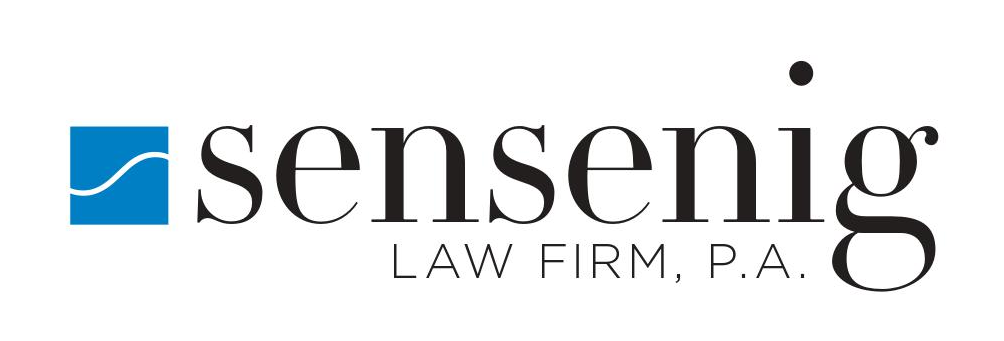Can an employee sue you for discrimination claims they never raised with the EEOC? A recent Fourth Circuit case says no. Learn why unalleged claims—like retaliation—may be dismissed and how a close reading of the EEOC Charge itself can become one of an employer’s strongest defenses.
Read MoreEpisode 41 of Wine by the Case uncorks Freakshow Cabernet Sauvignon and tackles family estrangement, celebrity cutoffs, and therapy-speak gone wild. Alexis and Chris explore when boundaries protect — and when they control — plus manipulation, alienation, and why shrinking someone’s world is a red flag. Listen now.
Read MoreIn January 2026, the EEOC rescinded its 2024 Guidance on workplace discrimination. While the move targets Biden-era interpretations — particularly protections for transgender employees —the law itself hasn’t changed. Title VII and Supreme Court precedent still apply. Here’s what employers really need to know.
Read MoreCan a country just take another country? Episode 40 of Wine by the Case heads north to Greenland to unpack treaties, sovereignty, NATO strategy, and viral presidential rhetoric — paired with a smooth Oregon Pinot Noir. Smart legal insight, cold geopolitics, and warmer wine takes in one entertaining episode.
Read MoreIn Episode 39 of Wine by the Case, Alexis and Chris sip a jammy Lodi Zinfandel while unpacking HPV-related lawsuits, throat cancer claims, and a wild Florida workers’ comp case involving a she shed, an STD, and the legal doctrine of “frolic and a detour.” Equal parts wine tasting, law school nightmare, and adult decision-making gone wrong.
Read MoreWine by the Case Episode 38 rings in 2026 with sequins, snark, and a Champagne of the Year pick. Alexis and Chris pop Philippe Glavier La Grâce d’Alphaël Grand Cru Champagne and play a rapid-fire New Year game covering hype songs, trends worth saving, Champagne rules, mile-high kisses, and bold 2026 mottos. Equal parts sparkle, strategy, and chaos.
Read MoreThe Supreme Court’s Muldrow decision redefines “harm” under Title VII, lowering the threshold for discrimination claims. Employers now face increased litigation risk for routine workplace actions. Learn what changed, what didn’t, and how to protect your organization through consistent policies, training, and documentation.
Read MoreWine by the Case Episode 37 unpacks one of the most important AI legal battles yet: Megan Thee Stallion vs. deepfake porn. Alexis and Chris break down how an AI-generated explicit video sparked a landmark lawsuit, why a Miami media operator was sued, what the jury decided, and how this case reshapes defamation, likeness rights, and revenge porn laws—over a $6.99 Aldi Napa Red.
Read MoreEpisode 35 of Wine by the Case uncorks a dark Florida Man case where kink, consent, mental health, and homicide collide. Alexis and Chris break down whether “she asked me to do it” is ever a defense, how states treat assisted suicide, and where consensual BDSM becomes a crime.
Read MoreExplore the legal fallout of DIY conception, gray-market sperm, and home-insemination kits in Episode 34 of Wine by the Case. Learn how Florida courts define donors vs. legal parents, why documentation matters, and how consent and custody collide outside clinic settings. Featuring Heartbreaker Red from Farmer’s Daughter Vineyards.
Read MoreEpisode 33 of Wine by the Case uncorks the truth behind Medicare clawbacks, Social Security repayment demands, and how ex post facto principles impact seniors and healthcare providers. Learn why 97-year-olds are being billed decades later and how billing errors trigger costly audits. Watch now for real cases and clear insights.
Read MoreIn Episode 32 of Wine by the Case, Alexis and Chris uncork the latest revelations from the newly released Epstein files and the fresh wave of royal fallout now dominating global headlines. From what the documents actually confirm to where Prince Andrew and Fergie stand as scrutiny intensifies, this episode blends sharp legal insight, media analysis, and a splash of La Marca Prosecco for a no-nonsense look at power, privilege, and the stories the palace wishes would go away.
Read MoreA viral lawyer, racist remarks, and a bottle of The Arsonist Chardonnay. Wine by the Case uncorks where free speech ends & employment law begins.
Read MoreJoin Alexis and Chris on Wine by the Case as they dissect the daring Louvre jewelry heist, exploring art law, insurance, and intrigue—all while sipping a Monnalisa Sangiovese di Romagna Superiore DOC.
Read MoreIn Episode 29 of Wine by the Case, Alexis and Chris break down Florida’s new open carry law—what it means for citizens, businesses, and employers. Learn how it impacts liability, insurance, and workplace policies while enjoying a bold Cabernet and legal insight.
Read MoreIn Episode 28 of Wine by the Case, Alexis and Chris—joined by guest Stefani—debate whether sampling grapes at the grocery store counts as theft under Florida law. Tune in for laughs, legal insight, and a splash of Spanish vegan wine.
Read MoreFlorida’s open carry ban has been struck down in McDaniels v. State, making it legal to carry firearms in public. Learn what this ruling means for businesses, property owners, and customers — and how to stay compliant with new open carry regulations across Florida.
Read MoreFlorida leads the nation in book bans — but is this parental choice or unconstitutional censorship? Dive into the legal fight for the right to read.
Read MoreFlorida has removed vaccination requirements for children, sparking legal and public health debates. In Episode 25 of Wine by the Case, Alexis and Chris explore how this controversial move affects schools, parental rights, and public safety—all over a bottle of Chaos Vegan Wine. Tune in to understand the legal ripple effects and what this means for families and policymakers.
Read MoreEvery business owner eventually faces a nightmare review — from absurd complaints (“They wouldn’t serve me spaghetti at their frozen yogurt shop!”) to hateful rants or disgruntled ex-employees. The hard truth: most false reviews stay online unless they violate a platform’s Terms of Service. Understanding how Google, Yelp, Facebook, and others enforce their TOS is the key to protecting your reputation. Learn how to identify removable reviews, cite violations effectively, and craft responses that turn negativity into credibility. We’ll also explain why lawsuits almost never work — and what to do instead. With the right approach, you can safeguard your brand, maintain customer trust, and keep bad actors from defining your business online.
Read More


















